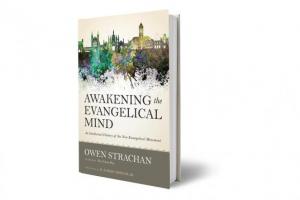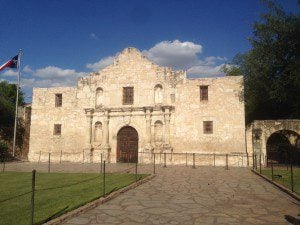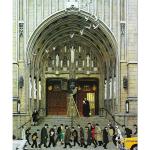After a little break, I thought that I would fire up the SSEC series once more. We’ve tackled “incarnational ministry,” “engaging culture,” boutique coffee-drinking, and maybe something else. I can’t remember. Anyway, here’s another subject that strikes me as a sacred evangelical cow: our degrees. Before you read on, however, I will require you to sign a mental disclosure statement that indicates that you understand that this post is written in a tongue-in-cheek style and is meant in good edifying fun.
Way back in time, in the early twentieth century, evangelicals (if we can call them that) did not believe strongly in degrees, as Joel Carpenter’s Revive Us Again shows in abundance. Many Christians, including some in the fundamentalist tradition, did not believe it necessary to earn them. In the mid-twentieth century, with the rise of neo-evangelicalism and pedigreed leaders like Harold J. Ockenga, many evangelicals switched tracks. Instead of distancing themselves from worldly credentials, they embraced them in order to shore up their cultural footing and gain social credibility.
In our days, it’s common for evangelicals to earn all kinds of degrees. If we once possessed too few credentials, making it easy for people to avoid taking us seriously, perhaps the pendulum has swung back too far the other way, such that we take ourselves too seriously. How many times have you seen an evangelical identify himself as “Dr. John Smith, PhD,” a title that immediately paints the possessor in a slightly insecure light? This is all too common among evangelicals. To paraphrase the immortal Bruce Dickinson (Google it with “gold-plated diapers”–no, I’m not making this up), we conservative Christians have a “fever for degrees.”
This extends beyond just one degree or title. I see people’s business cards identify them as “John Mottleby, MDiv” somewhat regularly. Now, I’m all for academic training. I believe in it. I think it’s useful, and I think that in many cases (especially colleges and seminaries) there is a great deal to be said for jumping through the hoops necessary to win accreditation. I differ with some when I say that I think, in my limited judgment and experience, that it is good for pastors (for example) to get a recognized degree (and maybe two if they sense the Lord leading them to do so).
But I am also aware that the whole thing can easily be overblown and taken way too seriously. We can take far too much pride in our degrees and we can think that they automatically bestow credibility or “expert” status upon us. Many of the smartest people I know, and a good chunk of the fine preachers and teachers I have benefited from, have had few degrees and credentials. They were simply deep thinkers and smart doers who were, among other things, freed from the insecurity that drives some of us to great degree-earning–and degree-displaying–heights.
I recall a conversation with a Christian friend studying in a secular context some years back that is instructive on this point. He noted that at his elite institution, few professors listed their degrees. They had little to prove and knew that academic distinction was a matter of course for their profession. They thus took their diplomas less seriously than many evangelicals do. Where scholars and leaders of other realms pay their past achievements little mind (in some instances), some of us evangelicals double-list them on our CV, insist on being referred to as “Dr. John” in any and all situations, and detail an alphabet soup of degrees–D. D., D. Litt., Psy. D., Ph. D., Y. M. C. A., and W. C. A. Y. S. D. (Who Cares About Your Stupid Degree).
So what’s the deal? Should we Christians stop earning degrees? No. At least I don’t think so. Should we stop mentioning our degrees? No. I just think that we might need a little bit of balance. Scholars, for example, very often need degrees, and sometimes lots of them. That’s well and good. Pastors also will in many cases benefit from earning degrees that feature stimulating content. So that’s well and good, too.
But we may find it helpful to find a little more security in the gospel and who God has made us than in our credentials, whatever they may be. Whether a PhD or a folk credential, we are often tempted in this life to find our security and our enfranchisement in certain experiences or attainments. These things may well play into who we are and what we do, but they should not take precedence over our status as children of the living God.
This is not to say that if John Smith identifies himself as “Dr. John Smith, PhD” that he’s lost all sight of his Christian citizenship. But he may be struggling with this temptation, as we all do in many different ways. Let’s collectively take a deep breath about our degrees, giving thanks to God for how He has allowed the American evangelical movement to intellectually bolster itself while simultaneously praying for ourselves and our leaders that we would not find our confidence or legitimation in any earthly thing, but only in the gospel of Jesus Christ.















